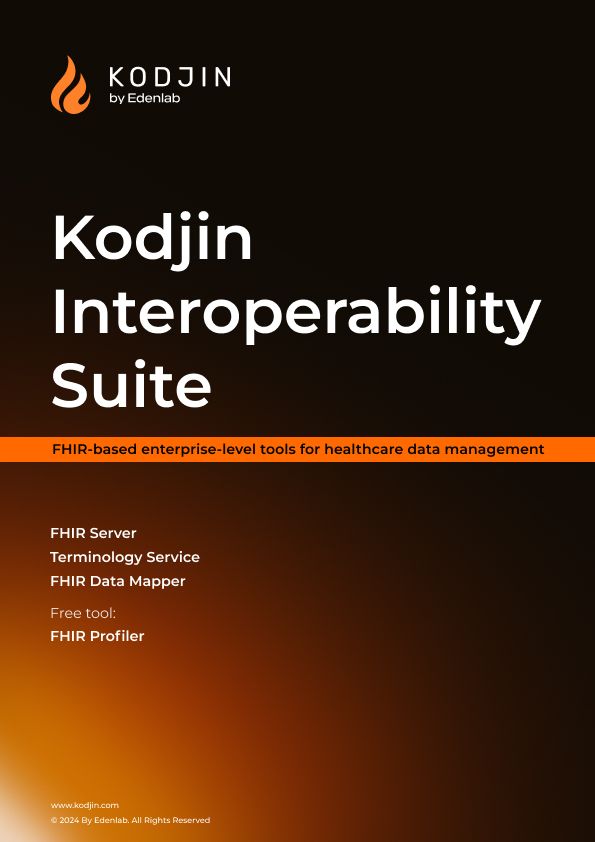The World Health Organization (WHO) recently shared the second edition of their shared language to describe the uses of digital technology for health. This document suggests the data warehouse as a healthcare data storage and aggregation solution.
Data warehouse has many benefits to it for all healthcare stakeholders. In addition to the apparent advantages of repositories for healthcare data, there are no less significant challenges.
In this article, we will break down data warehouse challenges and share our knowledge of building a national clinical data repository from scratch so you can leverage the advantages of data warehousing in healthcare.
What is data warehousing in healthcare?
A healthcare data warehousing is a centralized repository for storing data retrieved from EHRs, EMRs, laboratory databases, and other sources. Data from various sources undergo a transformation process to meet the standardized data format of a warehouse to simplify further analysis. Integrating world data for health research into these repositories enhances the comprehensiveness of the stored information, facilitating more robust analyses and informed decision-making.
A clinical data warehouse in healthcare can serve as a single source of truth for any healthcare organization since its primary goal is to collect and provide access to accurate data for advanced decision-making support. The data warehouse provides a robust platform for data analysis. The warehouse allows for applying data mining algorithms in healthcare to identify patterns, trends, and relationships between data to solve complex issues.
Below, you can find a detailed chart of the data warehouse architecture for healthcare, illustrating its various components and functionalities. This diagram demonstrates how a data warehouse for healthcare integrates multiple data sources into a unified platform for actionable insights.
We can see from the scheme that the healthcare data warehouse model involves several components that make warehousing possible, namely the data sources, staging area, and storage layer.
What are the benefits of a data warehouse in healthcare?
Data warehousing impacts multiple aspects of healthcare, including data management and exchange. Even though building a data repository demands investments and technical expertise, the many benefits of a clinical data warehouse make the effort entirely worthwhile. Healthcare teams often compare clinical data repository vs. data warehouse to determine which solution better fits their analytics and interoperability needs.
One of the main advantages of a clinical data warehouse is access to a complete picture of a patient’s health. Thanks to the ability to translate and collect data from different sources, a data warehouse can impact outcomes by gathering, for instance, data from a laboratory repository, a radiology database, and an EHR. Additionally, integrating synthetic data for healthcare allows for advanced analytics while preserving patient privacy and compliance with regulations. Analysis of data from different sources and timely access to healthcare information significantly improves the efficiency of healthcare services.
Seamless Information Exchange
A healthcare data warehousing enhances collaboration between different entities by consolidating information from electronic health records (EHRs), laboratory databases, and insurance claims into a unified repository for the best convenience of all healthcare actors.
Precise resource and cost management
Data warehouse provides a centralized repository for diverse healthcare data, simplifying information data collection, storage, and management. Integrating big data for healthcare into these repositories enhances their capacity to provide actionable insights for improved decision-making. Hence, healthcare professionals can access vital data promptly, streamlining healthcare workflows and enabling effective resource allocation.
Fast healthcare operations
Healthcare professionals deal with EHRs, insurance claims, lab results, and other types of healthcare data daily. Efficient collection, storage, and processing of such diverse data can significantly speed up decision-making. An example of high-quality analysis is digital twin technology in healthcare.
The warehouse helps automate various processes by providing prompt access to all types of healthcare data. When all data is gathered in one place in a unified format, healthcare professionals spend less time processing healthcare data and performing everyday tasks quickly and effectively.
Advanced predictive analytics
The analysis of data gathered from different sources can become actionable insights. A data warehouse provides comprehensive data storage for collecting big volumes of data in one centralized repository. Integrating data from various sources helps identify patterns and trends that may be impossible to see when analyzing data from a single source.
Moreover, data warehouses often provide a real-time data analysis option, which helps track data correlations as they emerge. Real-time data analysis is important for effective predictive analysis. For example, an increased number of patients with specific symptoms can help with effective early intervention and pandemic prevention.
One of the key challenges in data analytics is ensuring the accuracy and consistency of data from diverse sources, which is crucial for generating meaningful insights and facilitating real-time analysis.
Medical research support
A healthcare data warehouse provides researchers access to large amounts of cleansed clinical data to extract insights. Thus, analysis of risk factors and treatments for specific conditions can improve medical research.
In addition, data warehousing can promote collaboration between different organizations and groups of researchers. A solid clinical data warehouse architecture supports multi-institutional collaboration by standardizing data integration, storage, and access protocols. For instance, the integrated data about different clinical trials would help evaluate the safety and efficiency of various drugs and treatment procedures.
Key Features of a Healthcare Data Warehouse
A healthcare data warehouse should make data easier to use. When it works well, teams spend less time chasing definitions and fixing extracts, and more time answering real questions.
Data integration
Healthcare data comes from many places and rarely matches out of the box. A strong warehouse can ingest EHR, lab, claims, and pharmacy data without drama. It supports both scheduled loads and more frequent updates. It also standardizes key fields, so the same concept stays consistent. Patient matching and deduplication matter here, because duplicates happen often.
Metadata management
Metadata is the “map” that explains what the data actually is. It tells you where a field came from and what it means. It also shows when it changed and how it was transformed. This makes reporting easier to defend and repeat. It also prevents teams from reinventing definitions every quarter.
Data governance
Governance is how the warehouse stays usable over time. It sets ownership and makes responsibilities clear. It defines quality checks and how issues get fixed. It also sets rules for sharing, retention, and sensitive data handling. When governance is simple, teams follow it more often.
Security and access control
Access control is about giving the right people the right view. Roles and permissions should match real jobs and workflows. Strong authentication and audit trails help teams stay accountable. Encryption protects data in storage and in transit. Monitoring helps catch unusual access early.
Support for unstructured and structured data
Notes, documents, and narrative reports carry important context. A modern warehouse keeps that content available and searchable. It also links it to the patient timeline and encounters. This is what makes NLP and AI use cases realistic later.
Challenges of a healthcare data warehouse
Lack of data interoperability
One of the main challenges of an enterprise data warehouse in healthcare is the complexity of the data integration process. Data warehouses retrieve data from a wide range of sources which store data in different sources such as EHRs, wearables, insurance companies, etc. Most sources of healthcare information store data in various formats, potentially complicating data collection, integration, and analysis.
Healthcare data security threats
As we discussed in one of our previous articles, the value of data privacy in healthcare and rapid attempts of cyber attacks cause many security concerns. Therefore, protecting patients’ data must be a top priority for all healthcare stakeholders. Developing a robust data protection plan and using effective healthcare data security solutions are important for creating a secure healthcare data repository.
Lack of enterprise-level technical expertise
Healthcare data management is a complex process itself, but for a clinical data warehouse, it requires deep knowledge and experience to maintain a repository accurately. Therefore, the design and implementation of a healthcare data warehouse should be performed by specialists that know all the ins and outs of the healthcare IT world and can use their experience toward achieving the needs of a specific organization.
Healthcare Data Warehouse Models
Most healthcare organizations do not pick one “perfect” model from day one. They grow into a setup that matches how the business works. Some need one trusted source for the whole organization. Others need speed for specific teams. Many end up in the middle.
Enterprise data warehouse (EDW)
An EDW is one central warehouse that most reporting and analytics relies on. Data from the EHR, claims, labs, and finance flows into the same platform, then gets cleaned and shaped into shared datasets. Architecturally, EDWs usually have layers.
A raw landing layer keeps source data close to the original. A curated layer standardizes fields, terminology, and patient identity. A final layer serves BI and analytics teams with stable tables and metrics. The main benefit is consistency. When the EDW is the system of record, different departments are more likely to agree on the same numbers. The usual downside is speed. Because many teams depend on the same foundation, changes can take longer and require more coordination.
Independent data marts
Data marts are smaller warehouses built for a specific purpose, like quality measures, revenue cycle, or research. They are popular because they move fast. A team can build what it needs without waiting for enterprise alignment. Architecturally, marts may ingest directly from source systems, or they may pull from a shared staging layer if one exists. The tradeoff shows up later.
Two marts can calculate the same metric differently, refresh at different times, and match patients in different ways. When leadership asks “which number is correct,” teams end up spending time reconciling instead of analyzing.
Hybrid models
Hybrid models combine a shared core with team-level flexibility. Typically, there is a central layer where data is ingested, standardized, and governed. It handles the heavy lifting, like terminology mapping, deduplication, and common definitions.
Then different teams build their own marts or semantic layers on top for their workflows. Architecturally, this often looks like a shared lakehouse or curated enterprise layer plus domain marts. It tends to work well in healthcare because it keeps everyone grounded in the same source data, but it still lets teams move quickly when they have specific needs.
Examples of data warehouse in healthcare
The Global Health Observatory | WHO
WHO established the Global Health Observatory (GHO) as a public health observatory to facilitate the exchange of global health data. The GHO repository provides extensive data, tools, analysis, and reports.
WHO’s data warehouse is organized around various themes, covering critical aspects, including estimates of mortality and global health, health systems, public health and environment, and more. Each theme unfolds statistics and reports available for download.
The GHO’s Themes List includes:
- Environment and Health
- Child Malnutrition and Mortality
- Global Health Estimates
- Health Workforce
- Immunization Coverage and Vaccine-Preventable Diseases
- Mental Health
- World Health Statistics, and many more.
The GHO is a trusted source for health statisticians, epidemiologists, economists, and public health researchers, providing a comprehensive overview of global health and empowering them to make informed decisions and implement targeted interventions.
National Clinical Data Repository | Edenlab
The National Clinical Data Repository (NCDR) in Ukraine was created as part of the digitalization of the national eHealth system. In Ukraine’s eHealth system, the NCDR serves as the key instrument in overcoming the challenges of paper-based inefficiencies by navigating the accuracy and reliability of a data storage solution while ensuring strict data security concerns.
Key Features:
- Ensuring Data Reliability and Deduplication: The NCDR includes the MPI system, which provides deduplication and ensures the integrity of healthcare data in the repository. In addition, the system contributes to the enhancement of claims management processes.
- Preserving Data Accuracy with Electronic Signatures: All the changes applied to medical records must be signed by a doctor with an electronic signature, making clinicians responsible for the accuracy of the data stored in the national repository.
- Supporting Data Security: Using pseudonymization for health records and implementing an Attribute-Based Access Control mechanism ensures advanced security for data stored in the repository by restricting access with precision based on specific attributes.
- Providing Data Interoperability: The NCDR is built with the Fast Healthcare Interoperability Resources (FHIR) standard. FHIR is one of the most prevalent healthcare data standards recommended by government agencies globally for achieving semantic interoperability in healthcare. FHIR allows for supporting the highest level of data interoperability within the NCDR.
Read Also: Challenges of Interoperability in Healthcare
In addition to supporting the creation of 1.5 billion electronic medical records in the e-health system, the National Clinical Data Repository in Ukraine enables a modern and secure healthcare data storage and management system. Furthermore, the implementation of robotic process automation (RPA) in healthcare within this context can offer notable advantages. RPA use cases in healthcare may include automating routine tasks such as data entry, appointment scheduling, and claims processing.
How Can Kodjin Help you to Overcome Challenges of Data Warehouse in Healthcare
Considering all the challenges of data warehousing in healthcare, Edenlab’s FHIR experts created the Kodjin FHIR Server to serve as an enterprise-level data management solution. Its advanced validation functionality ensures data accuracy by validating information against FHIR profiles and maintaining a unified data format, making it more straightforward to use the information gathered in the data warehouse for further analysis. Additionally, the integration of text mining in healthcare with the Kodjin FHIR Server enhances the extraction of valuable insights from large data sets.
The FHIR API establishes a standardized communication channel between diverse systems and provides a seamless solution for data exchange in a standardized format.
Do you need a solution for housing a vast volume of healthcare data? Contact us for more details about building a data repository and leveraging FHIR. We’ll gladly discuss your health IT project and develop a strategy for implementing FHIR in your particular use case to upgrade your data warehouse capabilities with advanced healthcare analytics solutions that turn stored data into actionable insights for better decision-making and improved healthcare outcomes.
Real-World Use Cases of Healthcare Data Warehousing
A healthcare data warehouse turns scattered clinical and operational data into something teams can use for day-to-day decisions and long-term planning.
Predictive analytics for patient care
If you want to predict risk, you need more than one data source. A warehouse brings together visits, diagnoses, labs, meds, and care history, so models are not built on partial context. This supports very practical use cases, like identifying patients who are likely to bounce back to the hospital, spotting early signs of deterioration, or deciding who needs follow-up first. It also helps with ongoing model health. When inputs are stable and refresh on schedule, teams can track drift and keep predictions credible.
Research and clinical trial support
Research work often starts with a simple question: can we find the right patients fast enough. A warehouse makes that easier because data is standardized, linked across encounters, and stored with enough history to build cohorts with confidence. Teams use it for feasibility checks, recruitment lists, and longitudinal outcome tracking. It can also cut down manual chart review, since a lot of eligibility logic can be checked through structured queries. When lineage is clear, results are easier to reproduce later.
Cost optimization and operational efficiency
Many “cost problems” are really visibility problems. A warehouse helps teams see what drives utilization, where bottlenecks form, and why money leaks through denials or avoidable rework. Leaders use it to track service line performance, readmission drivers, avoidable ED use, and operational throughput. It also supports staffing and capacity planning, because you can compare demand patterns across units and sites. When reports stay consistent, the conversation shifts from “whose number is right” to “what do we change next.”
FAQ
Which warehouse is best suited for the healthcare sector?
A FHIR-first repository will support the most important aspects of healthcare data warehousing data accuracy, security, and interoperability.
How is a data warehouse different from a clinical repository?
A data warehouse is a repository crafted to gather and house data from diverse source systems across an enterprise or industry.
Does a clinical data warehouse contain structured data?
Clinical data warehouses typically store structured data, offering a standardized format for precise analysis, reporting, and informed decision-making in the healthcare field.






